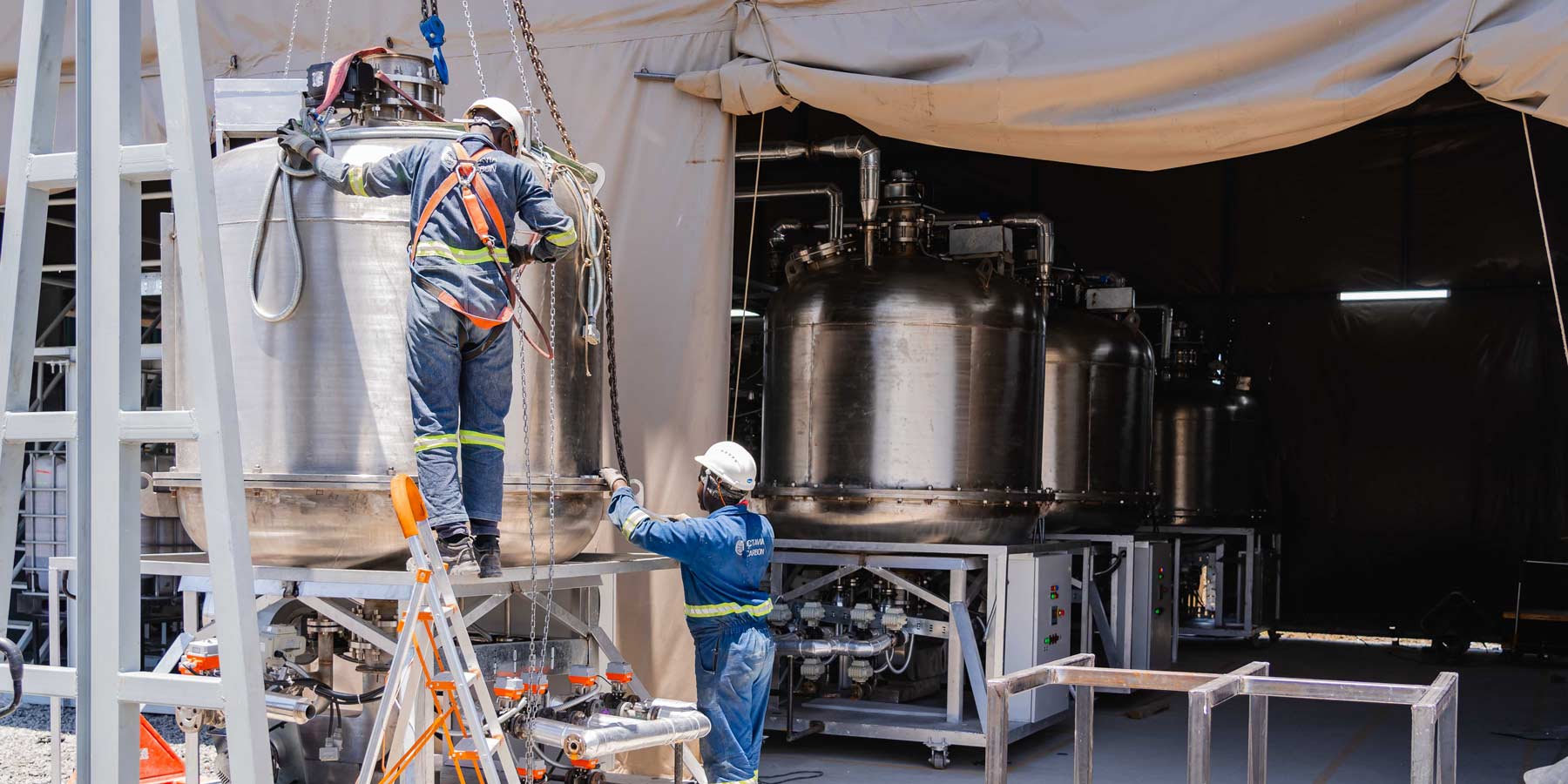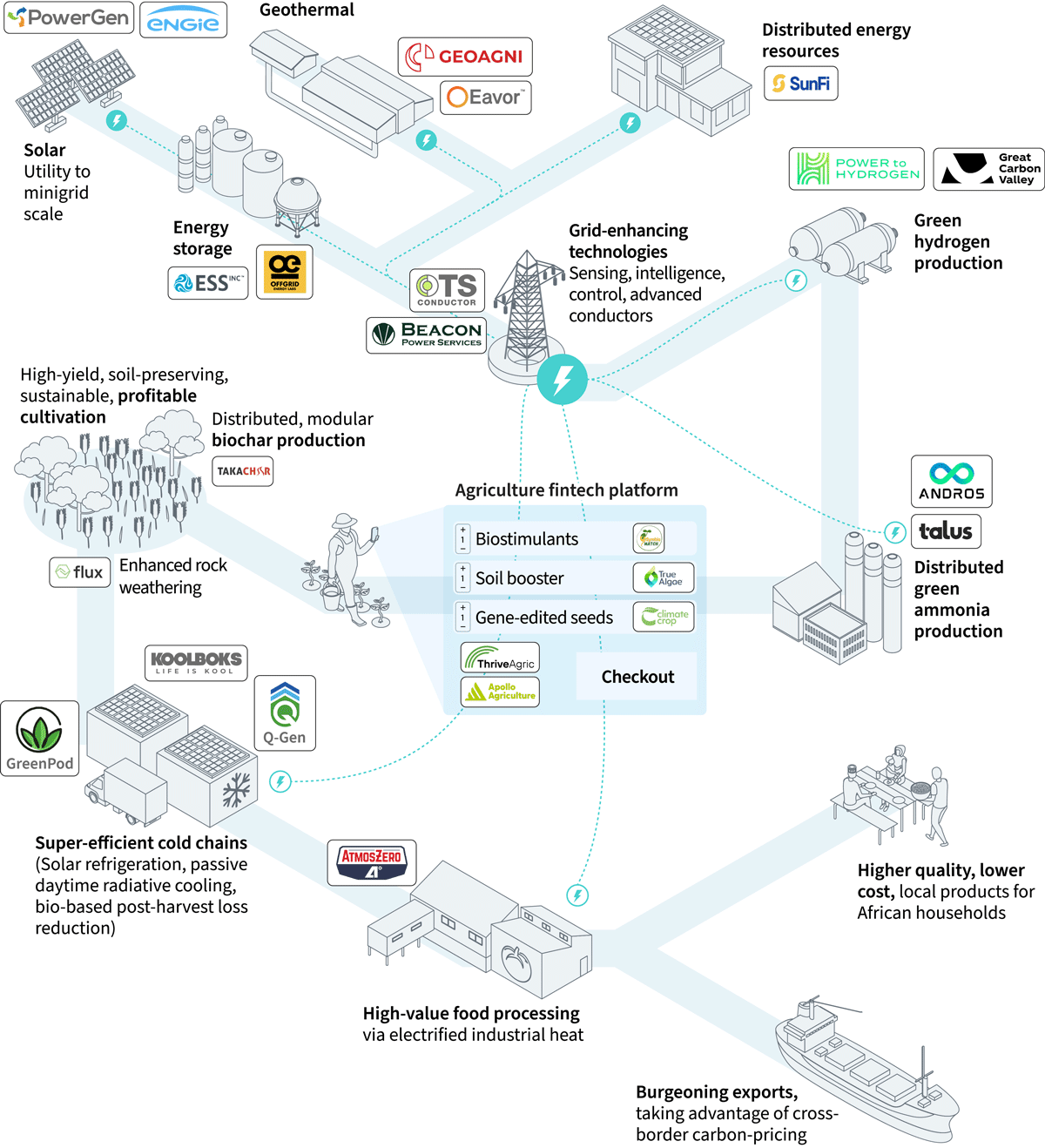The Opportunity for Emergent Climate Tech in Africa
Andrew Allee, Rushad Nanavatty, Caroline Winslow, Lyndsay Holley Handler (Delta40)

For too long, the global conversation around energy and climate has framed development and decarbonization as opposing forces, a choice between prosperity and planetary health. Africa has the opportunity to rewrite this script — to establish leadership in the industries that will define a future net-zero global economy.
This report from RMI and Third Derivative shows how African countries are positioned to seize the benefits of emergent technologies across energy, industry, agriculture, buildings, and carbon removal as they meet rising demands for nearly everything. Africa can serve this burgeoning demand while reducing import reliance by combining its world-leading renewable energy resources, critical mineral reserves, biogenic carbon pools, healthy soils, and a fast-growing, educated, and entrepreneurial workforce.
Because Africa isn’t nearly as locked into legacy systems as the rest of the world, it can build the next generation of industries, based on emergent climate tech, from scratch. The future of energy and industrial innovation doesn’t have to be confined to the Bay Area, Beijing, or Bengaluru; it can be built in Accra, Lagos, or Nairobi.
But the entrepreneurs building this future in Africa face headwinds. Climate tech VC investment is not even a tenth of the estimated need. Founders make do with thin early-stage support, virtually zero R&D funding, scarce or prohibitively expensive local currency capital, and slow-moving DFI- and donor-led funds.
The illustration below shows one example of how emergent technologies can connect in an energy-agricultural-industrial value chain that delivers high quality products to African consumers and export markets.

We have work to do
This report outlines several emergent climate tech opportunities that hold major promise for Africa, including green cement; green fertilizer; clean industrial heat; advanced geothermal; flexible, connected, and intelligent grids; and carbon dioxide removal. We also offer seven actionable solutions to accelerate their development and deployment:
- Increase Support for Africa-Based Idea-Stage Research and Venture-Building
- Create a Shared Investor Research, Diligence, and De-Risking Service
- Build a Consortium of Corporate Deployment Partners and Buyers
- Offer Financing Incentives to Induce Global Startups to Deploy in Africa
- Create Low-Interest, Local-Currency Debt Facilities
- Build an African “Project-Developer-as-a-Service” for Especially Complex Climate Projects
- Create a “Deal Team” to Close Africa’s Climate Finance Gap
These ideas for solutions are just a starting point for us and our collaborators, and there is much room for new ideas and further input as the concepts take shape. We welcome your partnership. Please reach out to Andrew Allee (aallee@rmi.org) with ideas, projects, leads, and questions.
Acknowledgements:
This report is based on research and convening funded by The Rockefeller Foundation. The findings and conclusions contained herein are those of the authors and do not necessarily reflect positions or policies of The Rockefeller Foundation.
We would like to thank representatives from the following organizations for their participation, insights, and commitment to this work to date: Africa Climate Ventures, ArcelorMittal, Aspyre Foods, BasiGo, Blue Haven Initiative, Beacon Power Services, Bezos Earth Fund, Breakthrough Energy Ventures, Climate Action Platform – Africa (CAP-A), CrossBoundary Group, Dalberg, Delta40, Factor E, GoogleX, HSBC, Kenewendo Advisory, Mosaic, Powerhouse, SunFi, Third Derivative, Temasek, the Lemelson Foundation, the Rockefeller Foundation, and Valo Ventures.
Additional contributors from RMI include: David Hynek, Anton Krimer, Ije Okeke, Lindsay Rasmussen, Emily Rogers, Alexander Hogeveen Rutter, Scarlett Santana


